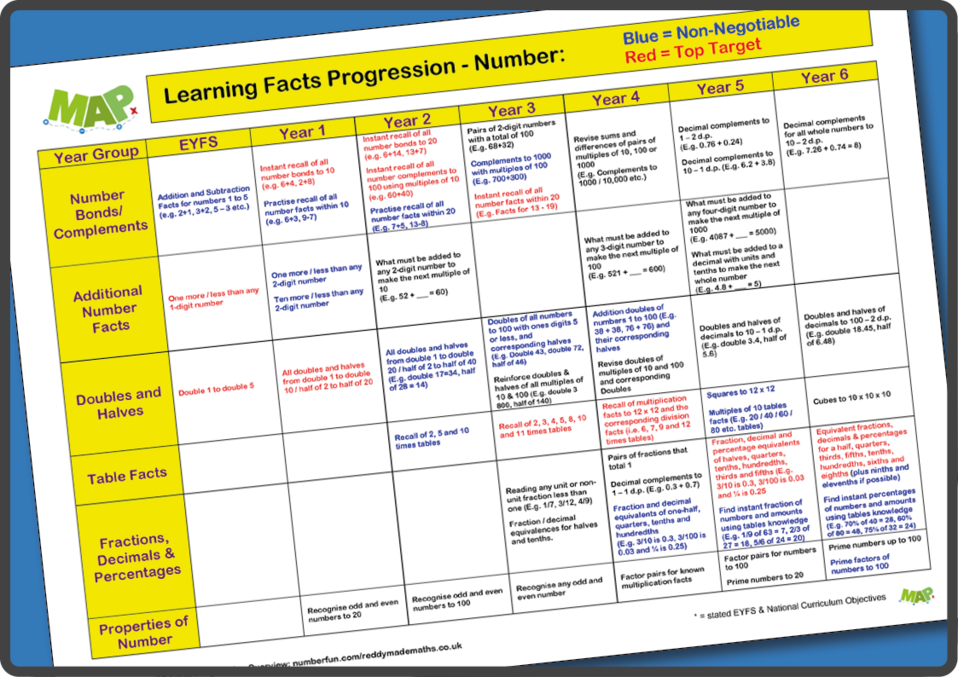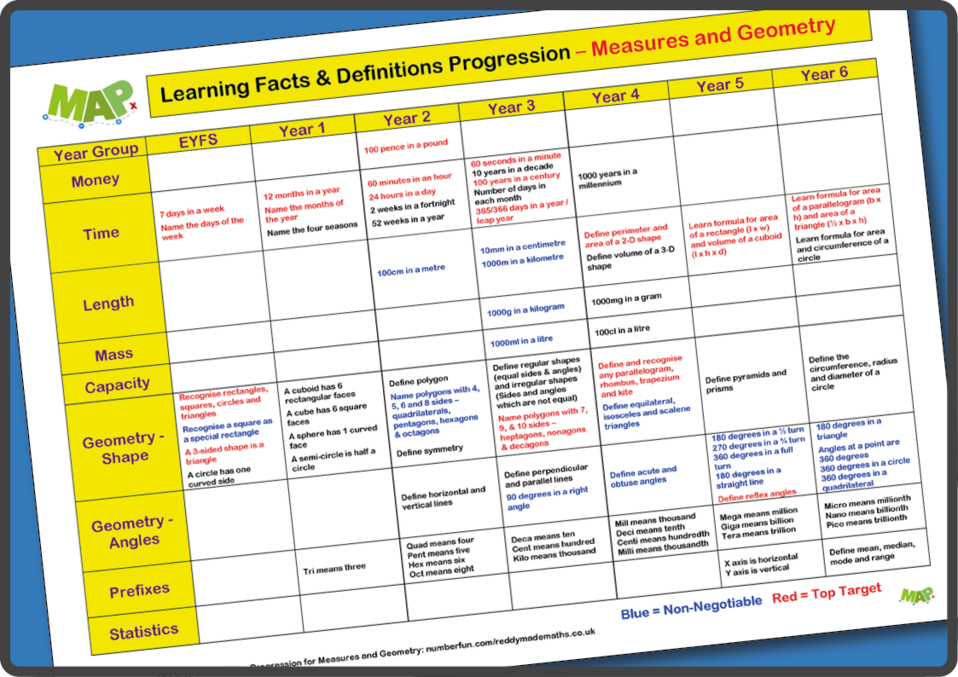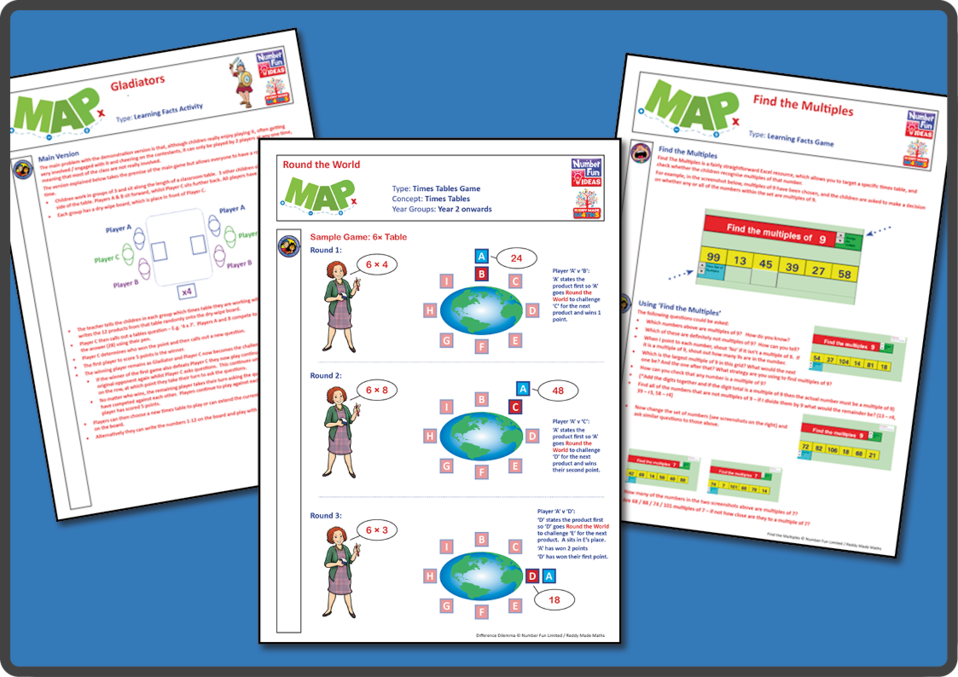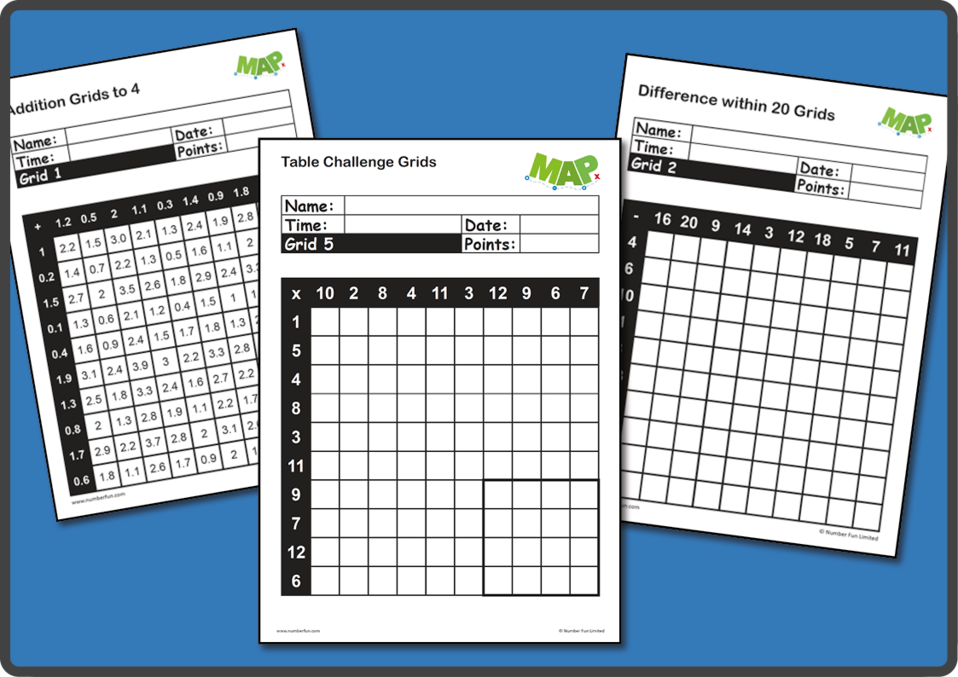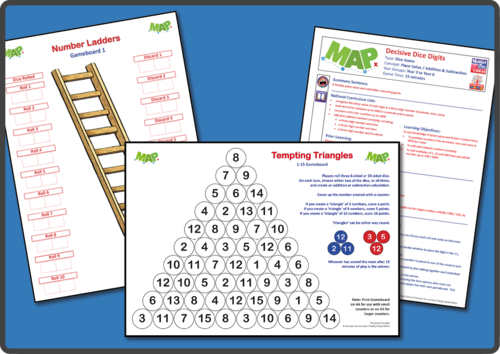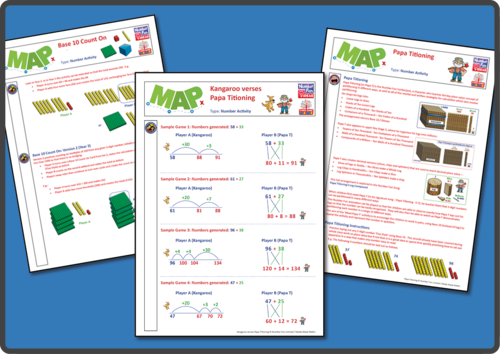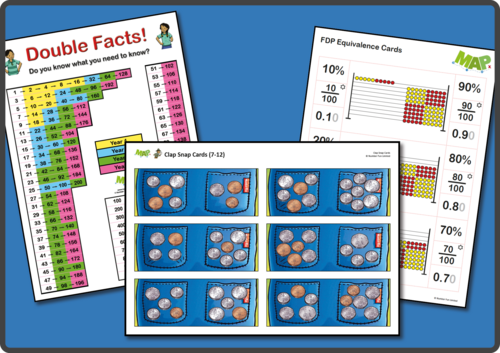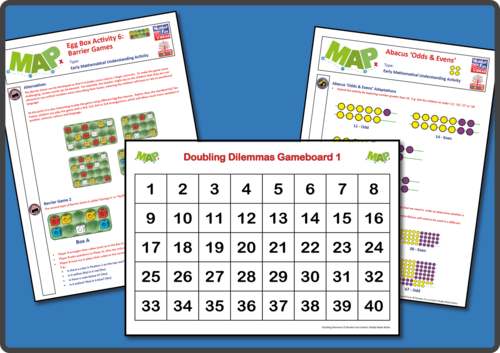
Facts
Progression
Automaticity - the Goal of Learning Facts
Since the introduction of the Multiplication Check in Year 4,
many schools have upgraded their efforts to help children
learn their times tables.
We learn table facts, and other key facts like bonds,
doubles and complements, for the purpose of automaticity.
When we know a fact, rather than having to work it out in
our head every time, we simply recall it. Knowing a fact
frees up our working memory.
MAP is geared to helping children learn key facts. We hope
you find the depth and breadth of the resources and
support here, to be really helpful.


Facts
Progression
Automaticity - the Goal of Learning Facts
Since the introduction of the Multiplication Check in Year 4, many schools have upgraded their efforts to help children learn their times tables.
We learn table facts, and other key facts like bonds, doubles and complements, for the purpose of automaticity. When we know a fact, rather than having to work it out in our head every time, we simply recall it. Knowing a fact frees up our working memory.
MAP is geared to helping children learn key facts. We hope you find the depth and breadth of the resources and support here, to be really helpful.
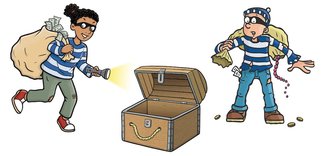
How does the learning of Key Facts link with
Mental Calculation?
Ofsted point out that pupils who are not able to recall maths facts quickly and easily, often struggle with calculations due to their working memory being overloaded.
On top of this, several mental strategies rely on having a bank of facts at your disposal. 45 add 47 is simple if you know that double 45 is 90! 45 add 47 is double 45 add 2 – 92. Equally, the calculation 86 + 47 may look tricky, but instantly knowing 8 + 4 = 12 and 6 + 7 = 13, enables you to quickly partition the numbers into 120 add 13 = 133.
Fact Progression
There are two sets of Key Facts that children need to know. The first set are Number Facts, like bonds, complements, doubles, halves, tables facts, FDP equivalences and other properties of number.
The second set are Measures and Geometry facts, including money, time, length, mass and capacity. Children also need to recognise facts and definitions for shapes, angles, prefixes and statistics.
The MAP progression documents lay these fact
requirements out for you.
Number Fun Fact Videos
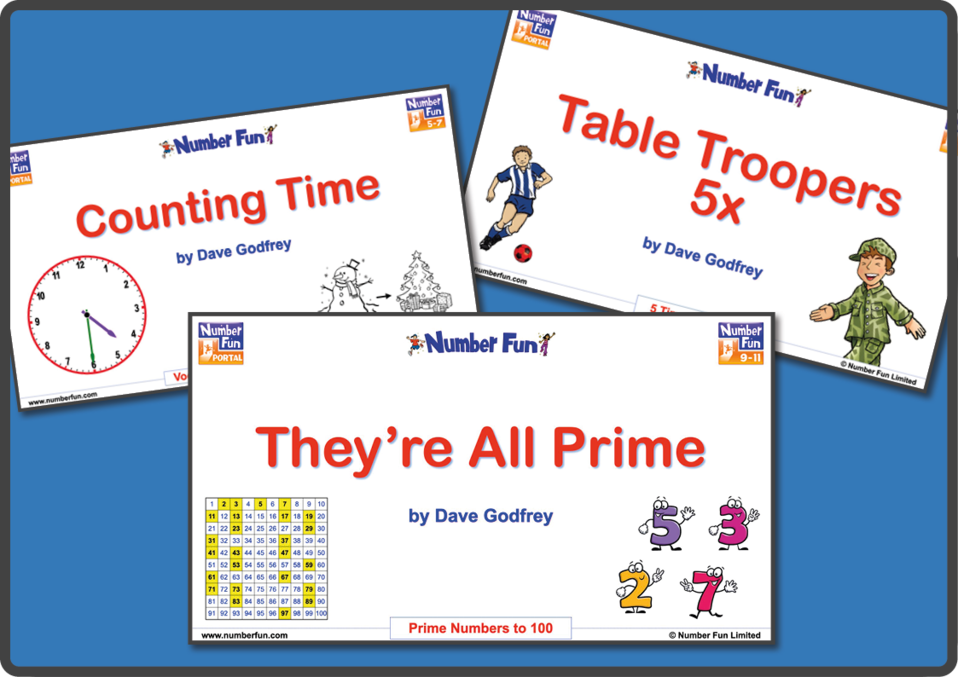
Songs are a great way to learn facts. Children recall the facts and definitions because the tune helps them remember. We call it the ‘Kylie Minogue Effect’ – “I just can’t get you out of my head!”
The Counting Time lyrics include: ‘60 seconds in a minute, 60 minutes in an hour, 24 hours in a day, time ticks away.’
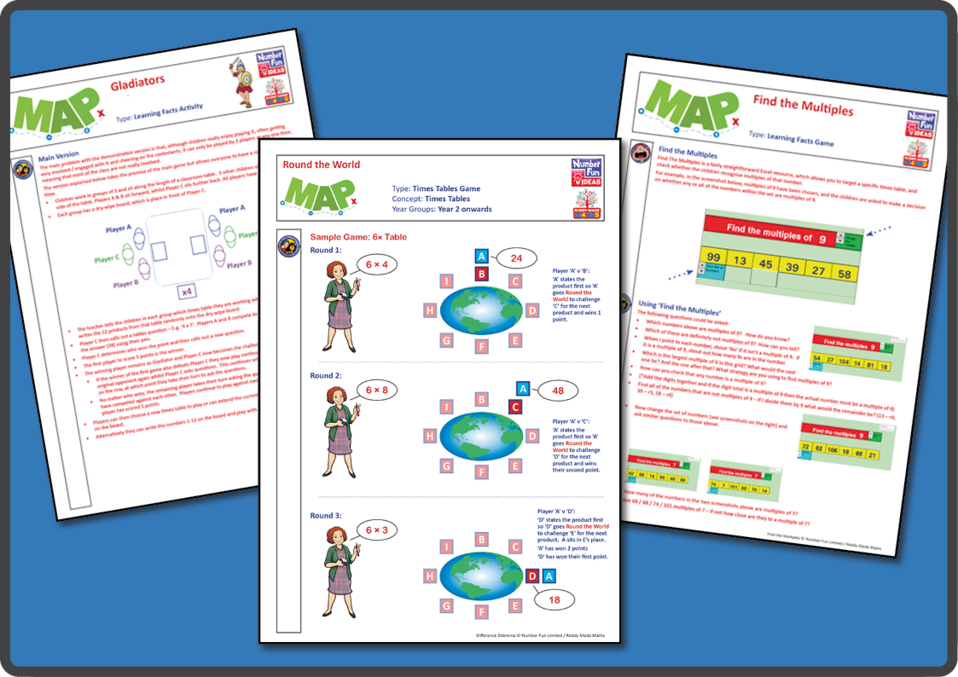
The Number Fun Videos also use the power of visualisation, animation, story and humour to help children engage in fact learning. The 28 Recall Accelerator Challenges, for example, cover all the key facts children need to know. These videos also include bonus sets of cards for trading and exploration.
Facts Games and Activities
We have a range of additional games and activities to help with the learning of facts. The games are a mixture of competitive and collaborative games to support fact learning.
We have a range of tried and tested Speed Grids. This is a form of low-stakes testing that is both fun and challenging. Ofsted suggests that children should be regularly challenged to beat their personal best within such testing.
In our Speed Grid trialling, we found another powerful measure to be the class average score… could we beat last week’s class average? These grids are ideal for Wednesday’s weekly fact recall challenges.
